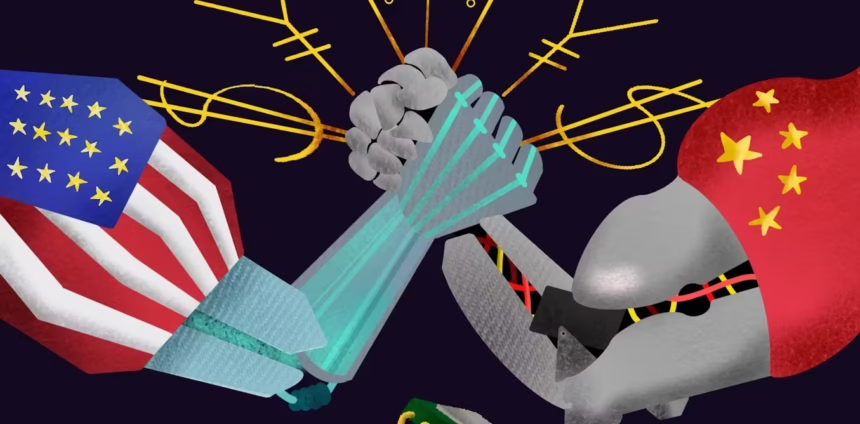The AI arms race is heating up, not just in terms of technological development, but also in how it is reshaping the public landscape—especially at major tech events like Microsoft Build and Google I/O. The rapid advancements in artificial intelligence, coupled with increasing collaborations between tech giants and governments, have sparked a new wave of employee protests and tighter security.
Microsoft Build 2025 Disrupted Amid AI Arms Race Concerns
At Microsoft’s annual Build conference in Seattle, tensions peaked when Executive Vice President Jay Parikh’s keynote was interrupted by a protester from within the company. The employee accused Microsoft of being complicit in the suffering of Palestinians by supplying cloud services and AI tools through contracts with the Israeli government.
Security guards, including undercover agents dressed like regular attendees, quickly removed the demonstrator. This marked another flashpoint in Microsoft’s ongoing challenges, as employees have previously formed protest groups like No Azure for Apartheid, opposing the company’s military contracts.
During another keynote, Microsoft CEO Satya Nadella was also interrupted by employees protesting Azure’s use by the Israeli military, yelling accusations that AI was enabling war crimes. The company responded by removing and later terminating those involved.
Google I/O Sees Protesters and Heavy Security Presence
Over 800 miles away, at the Google I/O developer conference in Mountain View, California, a different kind of preparation unfolded. Black-clad security personnel carefully inspected attendees’ bags—even opening lipstick cases and confiscating over-the-counter medications—to prevent any disruptions.
Outside the venue, pro-Palestinian demonstrators protested Google’s Project Nimbus—a $1.2 billion contract providing AI and cloud services to the Israeli government and military. Holding banners and chanting slogans like “We won’t stop till Nimbus is dropped,” these protesters voiced their concerns about how AI technologies are being used in global conflicts.
Last year, Google fired more than 50 employees for their protests against the same project. This year, Google increased CEO Sundar Pichai’s security budget by 22%, amounting to $8.27 million, reflecting growing concerns.
The AI Arms Race and Its Broader Impact on Corporate Security
Experts say the heightened tensions stem not only from geopolitical issues but also from the AI arms race. As AI becomes a powerful tool across industries, including defense, governments are partnering with major tech firms at unprecedented levels.
According to Kenneth Bombace, CEO of Global Threat Solutions, “It’s a turbulent world right now.” He noted that tech companies are experiencing more security threats and protests than ever before, especially those involved with military contracts.
Richard Dossett of American Global Security added that requests for corporate security have surged in the past six to nine months. Companies are concerned about internal dissent going public, especially with employees filming protest footage intended to go viral.
Employee Voices and Corporate Censorship Amid the AI Arms Race
Following the protests at Microsoft Build, employees claimed internal emails mentioning words like “Gaza,” “Palestine,” or “genocide” were blocked. Microsoft did not respond directly, though a spokesperson said efforts were made to reduce email traffic for those who had not opted into mass communications.
Meanwhile, Google has restricted employee discussions on international political issues, including military conflicts, in an effort to manage internal unrest.
Looking Ahead: AI Arms Race and Corporate Responsibility
As the AI arms race continues, companies like Microsoft and Google are not only competing on technological innovation but also navigating the ethical and political consequences of their partnerships. With employee activism on the rise and global awareness growing, tech firms face increasing pressure to balance innovation with responsibility.
Whether it’s through enhanced security, employee terminations, or tighter communication control, the message is clear: the future of AI is deeply intertwined with societal values—and employees are not afraid to speak out.
For more such news, stay tuned with 10X Times News.






